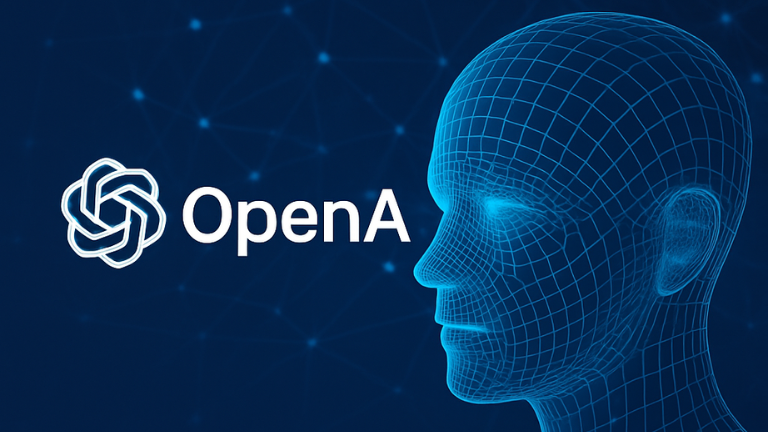OpenAI Poised to Launch Open-Source AI Model, According to Recent Leak

OpenAI’s Open-Source AI Model May Be Imminent: What the Leak Reveals and Why It Matters
The artificial intelligence landscape may be on the brink of another major disruption.
A recent leak has sparked speculation that OpenAI is preparing to release an open-source version of its AI model, signaling a potential shift in the company’s long-standing approach to closed-source deployment. For a company known for guarding its GPT models behind APIs and commercial access, this would mark a transformative moment.
In this article, we dive into what the leak reveals, why it matters, and what it could mean for developers, startups, enterprises — and how we at 2N'Z Tech are preparing to embrace and integrate this evolution.
🚨 The Leak: What We Know So Far
The leak reportedly emerged from insider conversations and GitHub activity pointing toward a new project — potentially an open-source variant of an existing language model. While details are still scarce, references to inference libraries, tokenizers, and training configurations suggest that OpenAI could be preparing to release a smaller-scale but powerful LLM (Large Language Model) to the public.
Importantly, the leak stops short of confirming whether the open-source release would match GPT-3.5, GPT-4, or something entirely new — but industry experts suggest it could be a strategic mid-tier release, enough to spark open innovation without cannibalizing their premium offerings.
🧠 Why This Move Could Be a Game-Changer
OpenAI’s potential move toward open-source AI follows in the footsteps of competitors like:
-
Meta, which released its LLaMA series under a non-commercial license, spurring widespread experimentation.
-
Mistral AI and Cohere, which are leaning heavily into community-driven model development.
-
Google, which has open-sourced elements of its Gemini ecosystem through Flax and JAX.
But OpenAI opening up would be different. It would represent a shift in philosophy — from strict control to controlled openness — and it could reshape the competitive landscape overnight.
Here’s why it matters:
✅ 1. Democratization of AI Development
Open-source access means that developers, researchers, and even smaller startups can fine-tune and build on top of high-performance AI models without incurring huge costs or relying on third-party APIs.
✅ 2. Acceleration of Innovation
Allowing the global developer community to experiment with OpenAI’s tech will likely result in faster iterations, novel use cases, and breakthroughs that closed models might not uncover.
✅ 3. Reputation & Trust
Open-source releases build transparency and trust, helping address criticism about bias, misuse, and lack of accountability in black-box AI systems.
✅ 4. Strategic Pressure
This could be OpenAI’s response to rising pressure from open competitors. By open-sourcing a baseline model, OpenAI can retain influence over the AI ecosystem while still leading the charge in advanced model commercialization.
🔒 What Might Be Restricted?
Don’t expect OpenAI to hand over the keys to GPT-4 just yet.
The leaked hints suggest a controlled release — possibly with restrictions on:
-
Model size or parameter count
-
Training data transparency
-
Commercial use licenses
-
Security and ethical usage guidelines
OpenAI may follow Meta’s approach of licensing for research and limited commercial use to balance innovation with safety.
🧩 How This Could Impact the Ecosystem
For Developers:
-
Easier access to build powerful AI apps without relying on paid APIs.
-
Opportunities for fine-tuning models to fit specific business domains.
-
More educational resources and reproducible research.
For Startups:
-
Reduced barriers to entry into the AI space.
-
Independence from high-cost platform dependency (e.g., GPT API, Claude API).
For Enterprises:
-
Potential for on-premise deployments and AI model ownership.
-
Enhanced data privacy and security by hosting their own models.
For OpenAI:
-
Increased community goodwill and ecosystem influence.
-
Ability to focus premium pricing on high-end, proprietary models like GPT-5 or future AGI-level systems.
⚖️ Balancing Openness and Responsibility
The decision to open-source is not without risks. Critics argue that releasing powerful AI tools could lead to:
-
Misinformation and deepfake generation
-
Cybersecurity threats through AI-generated code
-
Unethical or unintended misuse
OpenAI will need to strike a balance — offering openness with safeguards, and ensuring models are aligned with their core safety mission.
🔮 What’s Next?
While OpenAI has not officially confirmed the release, the AI community is buzzing with anticipation. If the leak holds true, we could see a new wave of open-source innovation, competition, and collaboration across the globe.
This move could also redefine how OpenAI is perceived — not just as a powerful AI provider, but as a platform for global AI advancement.
 English
English
 العربية
العربية

